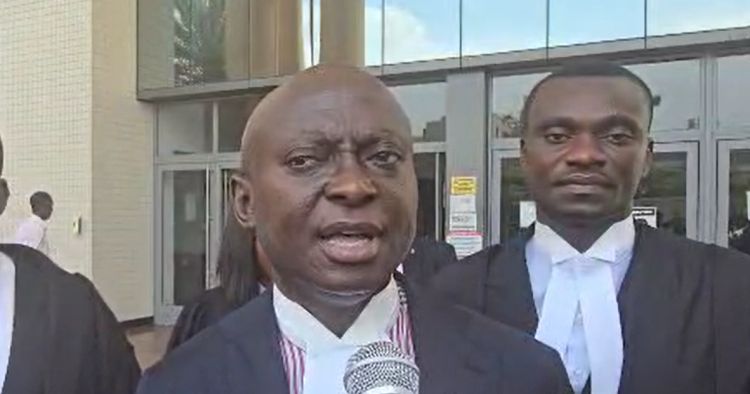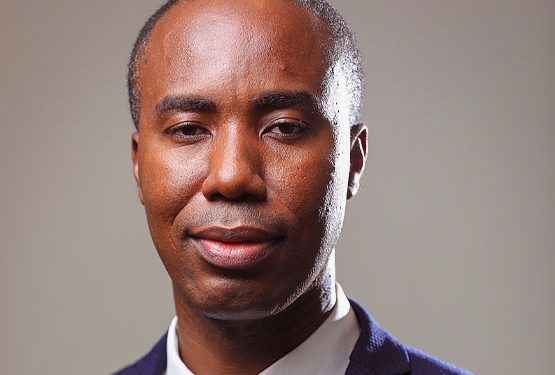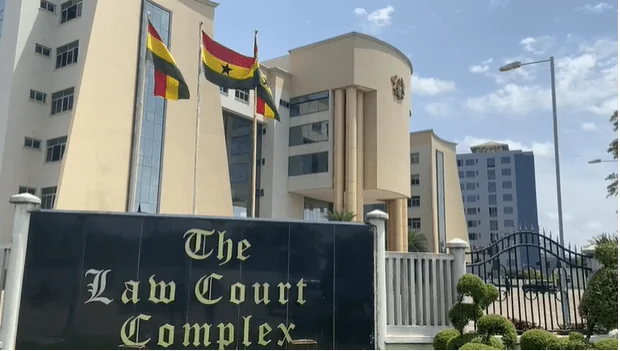AG’s Move to Drop Charges Sparks Debate in Adu Boahen Theft Case
Lead defence counsel Samuel Atta Akyea has criticised the Attorney General’s (AG) decision to withdraw charges against one of the accused persons in the ongoing GHS49 million theft trial, describing the move as a “strategic error” that weakens the state’s case and raises concerns about prosecutorial consistency.
Speaking to the media, Mr. Atta Akyea said the decision to transform Mildred Donkor, a former co-accused, into a witness for the prosecution is an “indication that the case is struggling to stand on its own merits.”
The development marks a key turning point in a case that has gripped national attention due to its alleged link to missing state funds and its implications for public accountability within Ghana’s justice system.
The Accra High Court, presided over by Justice John Nyadu Nyante, on Thursday, October 16, 2025, ruled in favour of the Attorney General’s notice to withdraw charges against Ms. Donkor. She was immediately discharged, and all case records involving her were ordered to be expunged.
The Attorney General’s Department exercised its constitutional power under Article 88 of the 1992 Constitution, which allows it to discontinue criminal proceedings at any stage before judgment is delivered.
However, this action did not sit well with Mr. Atta Akyea, who argued that the decision should have been formally moved by a motion before the court, rather than through a simple notice. He said the approach undermines procedural transparency in a case already under public scrutiny.
Justice Nyante disagreed, holding that the Constitution gives the AG unfettered discretion to initiate or discontinue prosecutions, provided the move is made in the interest of justice.

In his interview, Mr. Atta Akyea described the withdrawal as a “somersault” that exposes weaknesses in the AG’s case.
“When a prosecution starts charging people and then turns around midway to make one of them a witness, that signals uncertainty. It’s like removing the foundation of a house after the roof is already up,” he argued
He claimed that the AG’s move may have been influenced by strategic considerations, possibly to secure a testimony that could strengthen the state’s case against his client, Charles Adu Boahen, and the other defendants.
“Why should someone who was initially believed to be part of a criminal conspiracy suddenly be seen as credible enough to testify for the prosecution? Unless there is a deal freedom in exchange for cooperation,” he added.
The lawyer maintained that the decision would likely backfire, saying it demonstrates a lack of preparation and internal coherence within the prosecution’s camp.
The case involves former Minister of State at the Finance Ministry, Charles Adu Boahen, his wife Angela Adjei-Boateng, and their company, Advantage Solutions Limited. They are accused of diverting GHS49 million in state funds meant for national security-related projects.
The prosecution alleges that the funds were illegally transferred and rechannelled through Advantage Solutions between 2019 and 2022, during which time the company allegedly falsified procurement documents and inflated contract costs.
Mr. Adu Boahen and his wife have both pleaded not guilty to charges of stealing, conspiracy, and money laundering. The case is being heard by the Financial and Economic Crimes Division of the High Court in Accra.

Legal analysts and former prosecutors have expressed mixed opinions on the Attorney General’s move.
According to some legal commentators, converting a co-accused into a witness is not unusual in complex financial crimes, especially when prosecutors believe that the individual’s testimony could provide first-hand evidence crucial to conviction.
However, others argue that the practice carries significant ethical and credibility risks, especially if the witness benefits directly from the withdrawal of charges.
A senior legal analyst told the Ghana Legal Review that, while the AG’s decision falls within his constitutional mandate, “the optics of the move must be carefully managed to maintain public trust in the fairness of the judicial process.”
The Adu Boahen trial has become a litmus test for Ghana’s commitment to fighting white-collar corruption. With millions of cedis in public funds allegedly diverted, the outcome will likely influence public perception of how effectively the state prosecutes financial crimes involving high-ranking officials.
Ghana has faced similar challenges in past corruption trials, including cases involving state contracts, procurement fraud, and misuse of COVID-19 funds. Many of these cases suffered from delays, poor investigations, or political interference, leading to acquittals or mistrials.
Transparency advocates have urged the Attorney General’s office to avoid procedural missteps that could weaken its credibility in court and jeopardize the broader anti-corruption campaign.

With Ms. Donkor now positioned as a prosecution witness, the state is expected to rely heavily on her testimony to establish key links in the alleged transfer of funds. Her credibility, however, is likely to face intense scrutiny from the defence.
The trial resumes later this month, with the court expected to hear cross-examinations of financial investigators and forensic auditors involved in the case.
Observers say the handling of this phase will determine whether the prosecution can recover lost ground or whether the defence’s argument that the case is “collapsing” will gain traction.
As the proceedings continue, the case underscores a broader national question: Can Ghana’s justice system ensure accountability in politically sensitive corruption trials while maintaining public confidence in due process?

